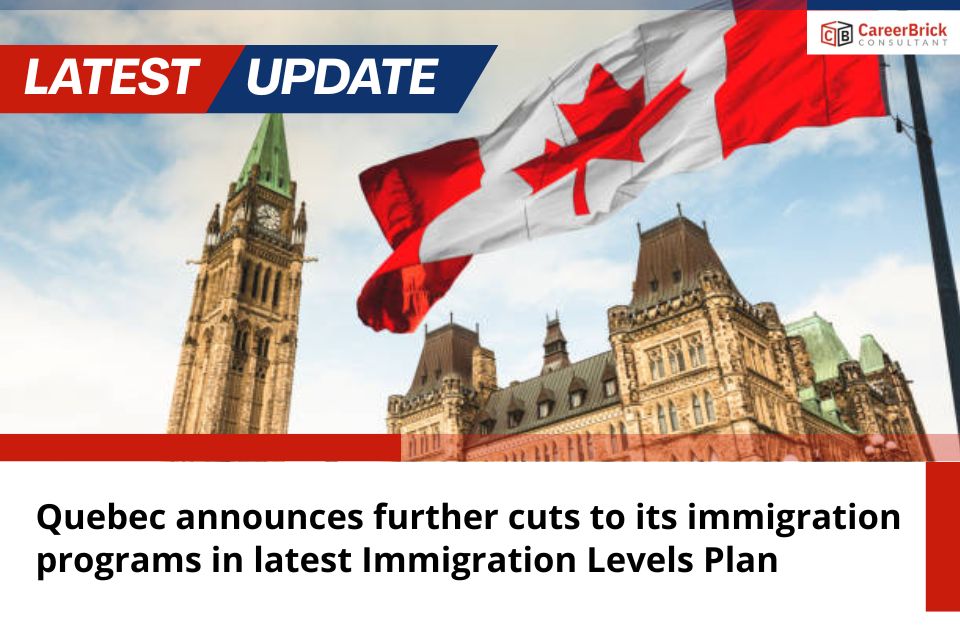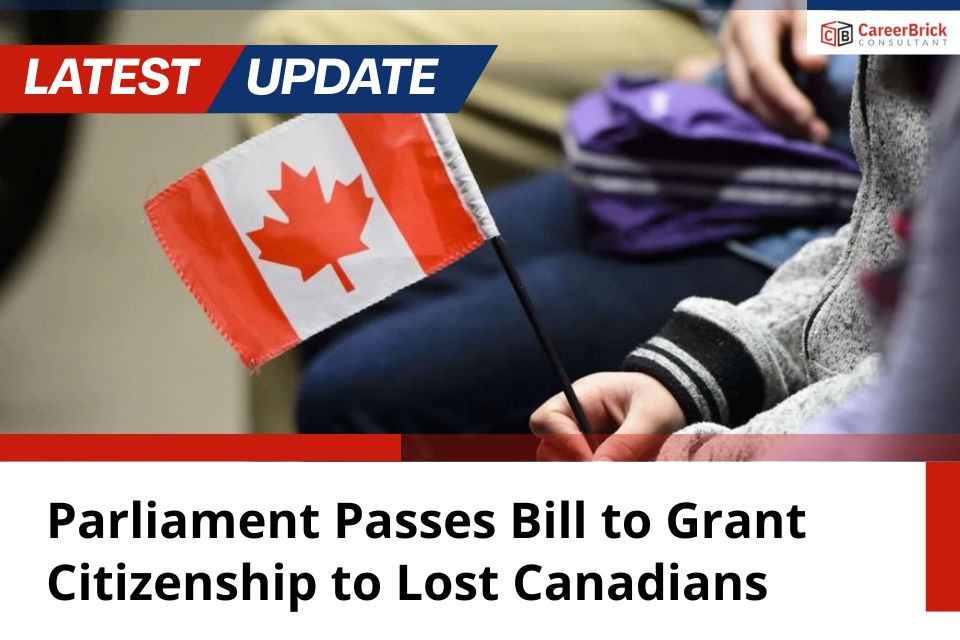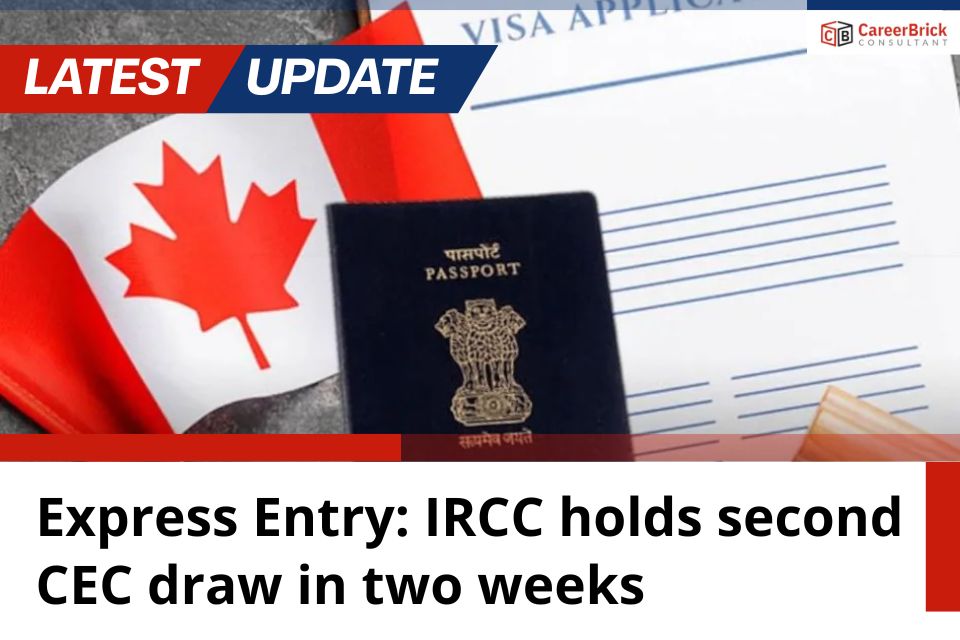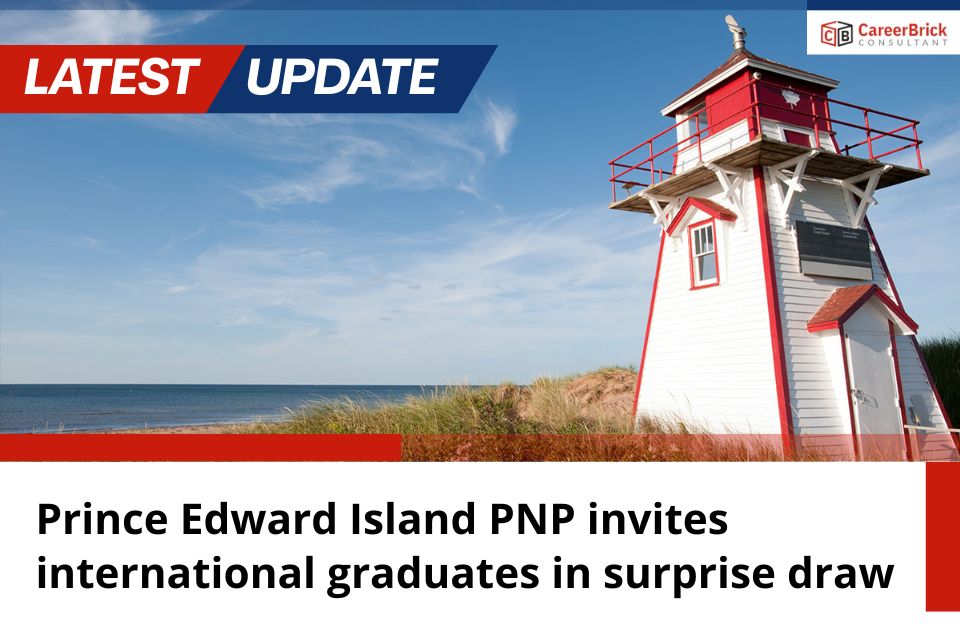Quebec has unveiled its latest Immigration Levels Plan for 2026, announcing significant cuts to its permanent and temporary resident admissions. The province now aims to welcome 45,000 new permanent residents (PRs) next year, setting a maximum target of 47,000 and a minimum of 43,000.
This adjustment marks a notable decrease from the 2025 targets, which ranged between 48,500 and 51,500 new PRs. Economic immigration will continue to dominate Quebec’s intake, representing around 64% of all permanent resident admissions in 2026.
2026 vs 2025 Immigration Targets
| Year | Minimum | Maximum |
| 2026 | 43,000 | 47,000 |
| 2025 | 48,500 | 51,500 |
Quebec’s Permanent Resident Breakdown
Out of the 45,000 permanent residents expected in 2026, 54% will be temporary residents already living in Quebec. The province plans to maintain this same PR target through 2030.
Here’s the projected distribution for next year:
| Category | Minimum | Maximum |
| Economic Immigration | 27,500 | 30,100 |
| Family Reunification | 9,600 | 10,400 |
| Refugees & Similar Cases | 5,500 | 6,000 |
| Other Immigrants | 400 | 500 |
Among economic immigrants, skilled workers will represent the majority, ranging from 27,050 to 29,500 admissions. Quebec also aims for 76% of new PRs to demonstrate French-language proficiency, underscoring its focus on linguistic integration.
During consultation earlier this year, Quebec had floated three possible admission figures — 25,000, 35,000, and 45,000 — ultimately opting for the highest threshold.
Temporary Resident Admissions for 2026
For the first time, Quebec’s plan includes targets for temporary residents, encompassing both foreign workers and international students. The province expects to host up to 124,200 temporary residents in 2026, including permit renewals.
| Category | Minimum | Maximum |
| Temporary Foreign Workers | 40,400 | 55,700 |
| International Students | 44,500 | 68,500 |
Roughly 48% of temporary foreign workers will be employed in agriculture, while 52% will work in non-agricultural sectors.
To support these targets, Quebec will issue the following number of Quebec Acceptance Certificates (CAQs) in 2026:
| Program | Minimum | Maximum |
| Temporary Foreign Worker Program | 43,400 | 63,700 |
| International Student Program | 87,300 | 1,14,100 |
CAQs are mandatory documents for individuals wishing to study or work in Quebec before applying for a federal permit.
By 2029, the province aims to reduce its temporary population to 65,000 foreign workers and 110,000 international students, reflecting a 13% decrease from 2024 levels.
New Measures to Limit Temporary and PR Admissions
To achieve these reduced targets, Quebec will implement several policy changes:
-
Labour Market Impact Assessment (LMIA) suspensions for certain positions in Montreal and Laval extended to December 31, 2026.
-
New French language requirement (NCLC Level 4) for Temporary Foreign Worker Program (TFWP) CAQ applicants, effective December 17, 2025.
-
A three-year grace period for current foreign workers to meet the French proficiency standard.
-
Agricultural workers exempted from the French requirement.
-
Suspension of the Program for Refugees Abroad (Collective Sponsorship) extended to December 31, 2029.
-
Closure of the Quebec Experience Program’s (PEQ) Graduate and Temporary Worker streams on November 19, 2025.
-
Permanent closure of the province’s three pilot programs effective January 1, 2026.
Applications already submitted under these programs will continue to be processed. Only Francophone candidates under the Artificial Intelligence stream can still apply, as all other quotas have been met.
Quebec’s Distinct Immigration System
Quebec operates under the Canada-Quebec Accord of 1991, granting it greater autonomy over immigration than any other province. The Ministère de l’Immigration, de la Francisation et de l’Intégration (MIFI) oversees the province’s programs, ensuring they align with Quebec’s cultural, linguistic, and economic priorities.
Prospective immigrants must first obtain a Quebec Selection Certificate (CSQ) from MIFI before applying to Immigration, Refugees and Citizenship Canada (IRCC) for permanent residency. While Quebec determines selection, IRCC retains authority over admissibility and final PR approval.
With these new restrictions, Quebec continues its effort to balance labour market demands, population growth, and preservation of the French language—a defining pillar of the province’s immigration strategy.







